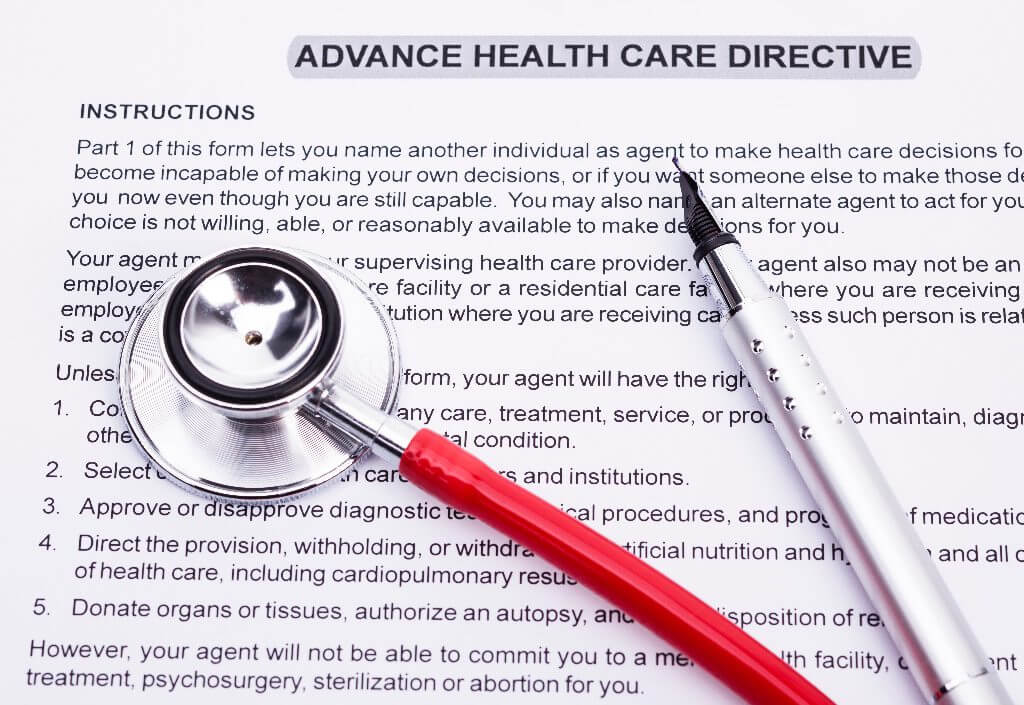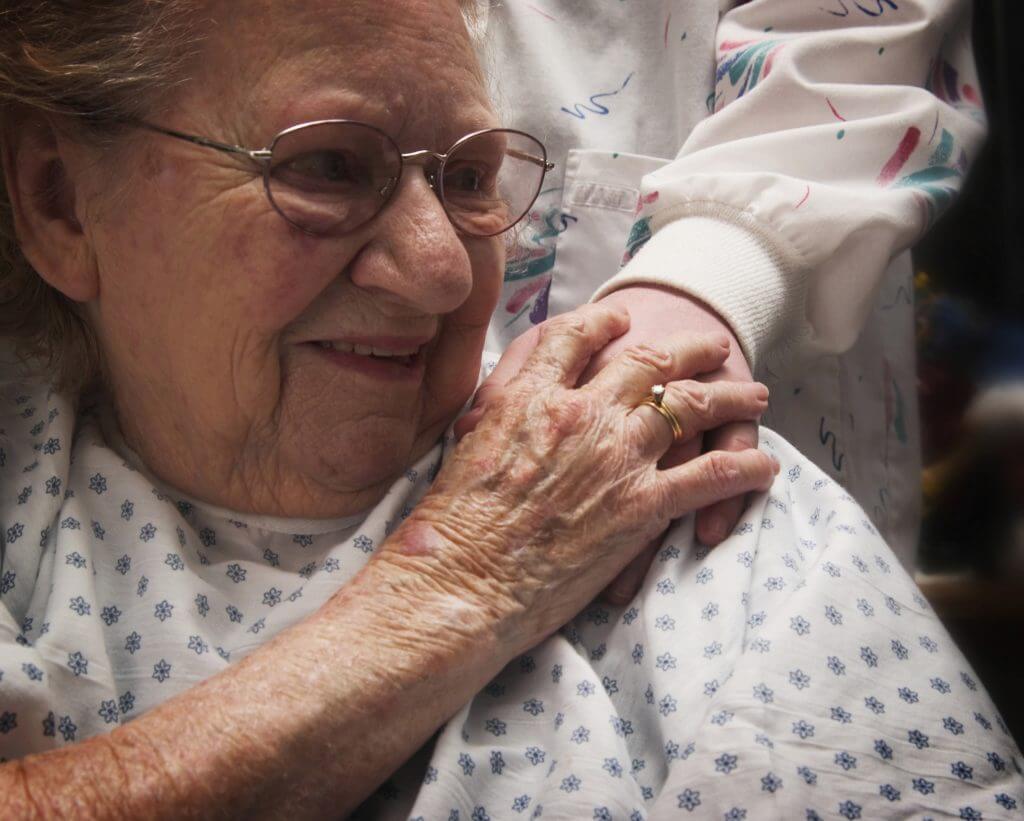GENERAL | April 16, 2019
Advance Care Planning Guide Part 2: List of Resources
Reading Time: 7 minutes

As you may (or may not) know, there are many online resources available to assist with advance care planning. We’ve put together a list of several links to advance care planning resources and related topics for health care professionals, as well as for patients and their caregivers. You can access our glossary of terms here.
Professional Resources
Advance Care Planning Resources
Advance Care Planning: An Introduction for Public Health and Aging Services Professionals is a free course from the CDC offering continuing education credits. Geared for public health and aging services professionals who serve adults and their families, as well as community-based professionals working with hospital systems, hospices, long-term care facilities, visiting nurse organizations, foundations, etc.
National Healthcare Decisions Day
National Healthcare Decisions Day is a public initiative that aims to “inspire, educate and empower the public and providers about the importance of advance care planning.”
The Serious Illness Care Program
The Serious Illness Care Program is a multi-component program that is based on the Serious Illness Conversation Guide. This guide offers clinicians language that can be used to ask patients about their values and goals of care.
Respecting Choices is an internationally-recognized, evidence-based program that addresses the advance care process and that helps create a culture of person-centered care.

Advance Directives Resources
Free Advance Directives and Instructions
Free, downloadable advance directives and instructions for each state from CaringInfo, a program of the National Hospice and Palliative Care Organization.
My Directives is a digital advance care planning platform that people can use to create, store, and share their free digital advance care plan as well as upload any third-party digital or paper-based advance care plan or POLST documents.

End-of-life Discussions
The Physician’s Guide to Talking About End-of-Life Care was published in the Journal of General Internal Medicine. This guide offers a “practical 4-step approach to conducting end-of-life discussions with patients and their families.”
Course for Building End-of-Life Conversation Skills
In conjunction with the Boston University School of Medicine and The Conversation Project, the IHI Open School offers this free course to introduce students and health professionals to basic skills for having conversations with patients and their families about their end-of-life care preferences.
National Academy of Sciences, Engineering & Medicine – Health and Medicine Division
Here is a link to access Dying in America: Improving Quality and Honoring Individual Preferences Near the End of Life, which is a consensus report from the Institute of Medicine (IOM).

Health Literacy
Agency for Healthcare Research & Quality (AHRQ)
AHRQ offers several health literacy resources to help health care professionals and delivery organizations make information easier to understand and systems easier to navigate.
Health Resources & Services Administration
HRSA, an agency of the U.S. Department of Health and Human Services, is the primary federal agency for improving health care to people who are geographically isolated, economically or medically vulnerable. This link provides information and resources for promoting health literacy.
Centers for Disease Control & Prevention
The CDC offers information, guidance and tools for developing health literacy programs as well as health literacy courses for health professionals.
National Action Plan to Improve Health Literacy
An initiative from the Office of Disease Prevention and Health Promotion to improve health literacy through an action plan consisting of seven goals with strategies for achieving them.

Hospice, Palliative and End-of-Life Care
The POLST Paradigm was created to “improve the quality of patient care by creating a system that identifies patients’ wishes and communicates and respects them” through portable medical orders. The National Physician Orders for Life Sustaining Treatment (POLST) Paradigm provides several downloadable materials for healthcare professionals and patients to help them learn more about the program.
The GW Institute for Spirituality and Health (GWish) offers educational programs and clinical resources for physicians and other members of the multidisciplinary healthcare team, including clergy and chaplains. The Spirituality and Health Online Education and Resource Center (SOERCE) has numerous programs in the fields of spirituality, religion and health.
Hospice and Palliative Nurses Association
The Hospice and Palliative Nurses Association (HPNA) promotes advance care planning in addition to advancing expert care in serious illness.
National Association of Home Care & Hospice
National Association of Home Care and Hospice (NAHCH) is the largest trade association in the U.S. representing the interests and concerns of home care agencies, hospices, and home care aid organizations.
National Hospice and Palliative Care Organization
National Hospice and Palliative Care Organization (NHPCO) represents hospice and palliative care programs and professionals in the U.S. and works to expand access to hospice care and improve end-of-life care.

Medicare
FAQ Sheet about Billing for Advance Care Planning Services
This document from CMS answers frequently asked questions about billing advance care planning (ACP) services to the Physician Fee Schedule (PFS) under CPT codes 99497 and 99498 beginning January 1, 2016. Information based on the final rule policies for ACP in the 2016 PFS final rule.
Advance Care Planning Fact Sheet
A downloadable fact sheet from the Medicare Learning Network (MLN) providing information for Medicare Fee-For-Service Providers about voluntary advance care planning under the Medicare Physician Fee Schedule (PFS) and the Hospital Outpatient Prospective Payment Systems (OPPS).
Advance Care Planning and the Annual Wellness Visit
An article from the MLN for providers who submit claims to Medicare Administrative Contractors (MACs) for Advance Care Planning (ACP) services that are provided as an optional element of the Annual Wellness Visit (AWV) to Medicare beneficiaries.

Patient Decision Aids – Assessing Quality
National Standards for the Certification of Patient Decision Aids
The National Quality Forum issued a downloadable publication which summarizes the expert panel’s recommended criteria for the certification of patient decision aids.
Washington State Healthcare Authority
As part of the “Healthier Washington” shared decision making initiative, Washington State HCA has established a process to certify patient decision tools, including for end-of-life care.
International Patient Decision Aid Standards
The IPDAS Collaborative aims to enhance the quality and effectiveness of patient decision aids by establishing a shared evidence-informed framework with a set of criteria for improving their content, development, implementation, and evaluation.
Addressing Health Literacy in Patient Decision Aids
Journal article published in BMC Medical Informatics & Decision Making.

Shared Decision-Making
Agency for Healthcare Research and Quality (AHRQ)
AHRQ’s SHARE Approach, which is a five-step process for shared decision making. AHRQ also provides access to tools and training resources that support the implementation of shared decision making in clinical practice.
Ask Me 3 is an educational program that can help patients become more active members of their health care team as well as improve communications between patients, families and health care professionals. Program materials and resources are available for download and distribution from The Institutes for Healthcare Improvement / National Patient Safety Foundation.
Mayo Clinic Shared Decision-Making National Resource Center
Develops, implements, assesses and offers resources for shared decision making techniques and patient decision aids.
Minnesota Shared Decision Making Collaborative
This multi-stakeholder community learning collaborative offers information and resources to professionals looking to enhance effective shared medical decision-making between patients and health care teams.

Patient & Caregiver Resources
Advance care planning information for Medicare patients.
National Institute on Aging (NIA)
The NIA provides general guidance on advance care planning for patients and their families.
Free downloadable advance directives and instructions for each state.
The Family Caregiver Alliance strives to improve the quality of life for caregivers through advocacy, services, and information. It addresses the needs of family members and others by providing long-term care at home and offers programs at the national, state, and local levels to support and sustain caregivers.
PREPARE is a step-by-step program that helps patients have a voice in their medical care and helps them to talk with their doctors, family, and friends about advance care planning. The program also helps patients fill out an advance directive online.
The Conversation Project is an initiative of the Institute for Healthcare Improvement and is dedicated to helping people generate conversations about their wishes for end-of-life care with family members.
The Go Wish Gameis a card game developed by the Coda Alliance to stimulate positive discussions about values and wishes regarding end-of-life care.
AARP’s Caregiving Resource Center offers helpful tools, perspectives, guides and education for caregivers about advance care planning.
American Bar Association (ABA)
The ABA developed a “tool kit” that includes self-help worksheets, suggestions and resources designed to help people discover, clarify and communicate what is important to them when facing serious illness.
The American Society of Clinical Oncology (ASCO), supported by the Conquer Cancer Foundation, has an online resource for advance care planning for people living with cancer and those who care for and about them.
From the Center for Practical Bioethics, Caring Conversations is a workbook to help people communicate their healthcare preferences. The workbook contains advance directive documents that are valid in every state when notarized and signed by two witnesses.
The website of the National Library of Medicine (part of the National Institutes of Health) offers easy-to-understand information on advance directives.
The Alzheimer’s Association offers the End-of-life Decisions: Honoring the Wishes of the Person with Alzheimer’s Disease brochure that provides information about what a family may face when a loved one with dementia nears the end of life.

To learn more about topics related to advance care planning, visit our blog.
Don’t forget to share this post!
You might also like...

Addressing the Needs of Dual Eligible Bene...
GENERAL | 3 MIN READ

How to Promote Health Equity with Patient ...
GENERAL | 3 MIN READ

Understanding the Obstacles to Telehealth
COVID-19, GENERAL, TECHNOLOGY | 3 MIN READ
